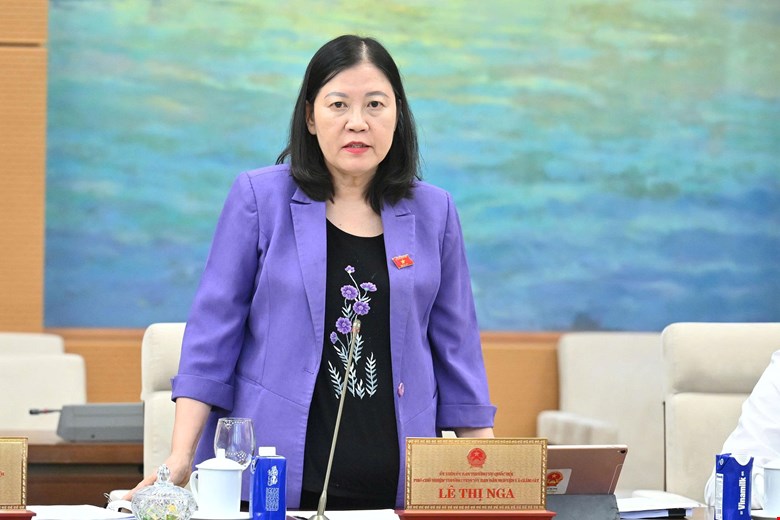On August 12, the National Assembly Standing Committee gave its opinion on the draft Law on Enforcement of Criminal Judgments (amended).
Speaking at the meeting, Politburo member and National Assembly Chairman Tran Thanh Man said that this is an extremely urgent task to implement according to Resolution 66 of the Politburo on law-making and law enforcement in the current new conditions.
According to the National Assembly Chairman, the draft Law on Enforcement of Criminal Judgments (amended) is one of the Government's urgent bills, which has been initially reviewed by the Law and Justice Committee.
The National Assembly Chairman proposed to clarify the provisions on the management and enforcement of prison sentences in the draft law, and at the same time, proposed to add regulations on the commitment of the person being managed and enforced to the prison sentence and clarify the handling measures when this person violates the commitment.
According to the National Assembly Chairman, managing this group is very difficult. Therefore, what is the case of a person being managed or serving a prison sentence violating a commitment to obligations according to regulations?
It is necessary to authorize the People's Committee and the police at the commune level to propose to the competent criminal enforcement agency to consider canceling the decision to serve the prison sentence. There must be specific regulations on processing time, for example, within 3 to 7 days from the detection of violations.
In addition, the National Assembly Chairman also requested clarification of regulations on electronic monitoring of people serving suspended sentences or being released from prison early.
According to National Assembly Chairman Tran Thanh Man, the law needs to clearly define the funding source for equipment, the responsibility for managing and operating these devices to ensure feasibility.
Another problem raised by the National Assembly Chairman is that the regulation on maximum visit times and frequency is not clear, leading to inconsistent application between Prisons.
"It is necessary to unify the regime of visits between Prisons to ensure fairness, avoiding the situation where some places apply it twice a month, while others apply it once a month" - the National Assembly Chairman stated.
The National Assembly Chairman also noted the proposals to increase feasibility, transparency, protect human rights, and enforce judgments. At the same time, it protects the unity in the current legal system.
"On the basis of the Law on Enforcement of Criminal Judgments related to humans, we do not control the number of pages and chapters, but must do it carefully" - the National Assembly Chairman added.

Participating in the comments, Permanent Deputy Head of the Committee for Petition and Supervision Le Thi Nga expressed her agreement with the Government's proposal to legalize regulations for prisoners working and vocational training outside of prison.
Ms. Nga said that the pilot implementation under Resolution 54 of the National Assembly in the past 3 years is enough practical basis to officially include it in the law.
Regarding the issue of classifying the enforcement of judgments, according to the Standing Deputy Head of the Committee for Petition and Supervision, relying on "results to remedy consequences" needs to be carefully considered to ensure fairness.
"There are prisoners who are very aware of reformation but their families are poor so they cannot overcome the consequences, while others have conditions. This needs to be regulated reasonably so as not to cause disadvantages for them" - Ms. Nga analyzed.
Another content that Ms. Nga mentioned is the scope of regulation in the draft law, including the tasks and powers of criminal enforcement management agencies.
"We propose not to assign the Minister of Public Security and the Minister of National Defense to specify in detail the organization of the apparatus, tasks and powers in the criminal enforcement agency system, but to specify them directly in the law" - the Standing Deputy Head of the Petition and Supervision Committee commented.










